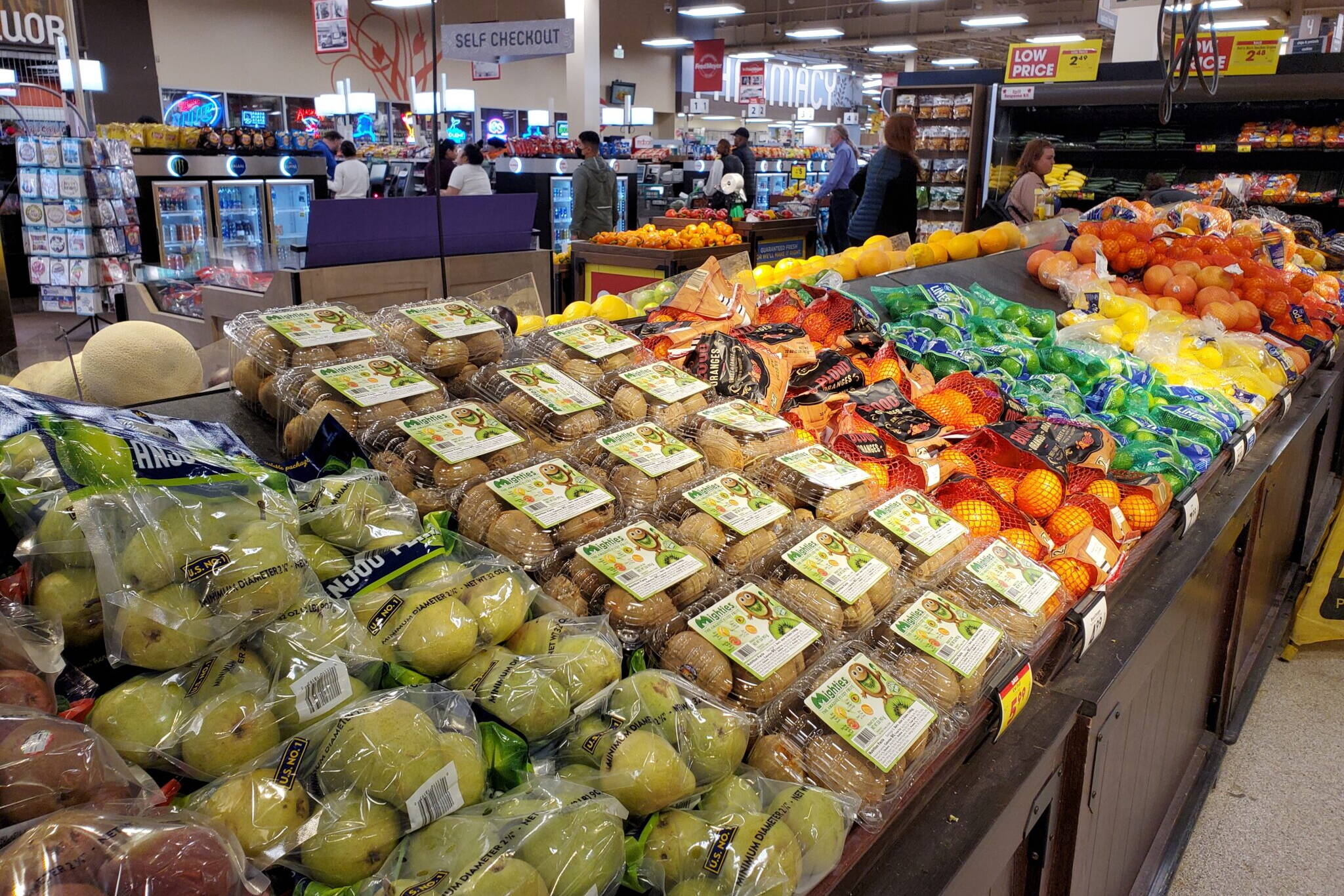The state government has again made headway in reducing the number of Alaskans waiting for food aid. But national data show the number of Alaskans who use the program has dropped 10% in the last year.
The latest data from the Division of Public Assistance shows that state staff have reduced the food stamp backlog to just under 5,800 cases, less than half what it was toward the end of last year. And officials say the existing backlog contributed to the decline in beneficiaries.
The roots of the backlog trace to 2022, when federal administrators said 15,000 Alaskans were waiting months for food aid. The current count is the lowest the waiting list for benefits has been in the state since last August, before the backlog leapt back up to more than 12,000 people at the end of the year.
Division Director Deb Etheridge said her staff are working hard to stay up to date on new applications as they log overtime hours to get Alaskans their benefits.
“We’re still on track to have that backlog cleared by the end of February,” she said.
Slow processing times in the Division of Public Assistance have meant that fewer Alaskans are accessing the federal food aid program. National data shows that Alaska’s participation in the SNAP program dipped by more than 10% in the year between October 2022 and October 2023, putting the state in the top five fastest falling participation rates.
Etheridge said that decrease reflects the backlog that left thousands of Alaskans waiting months for food aid last year.
“If you look at utilization in Alaska from year to year, it didn’t look good, right?” she said. “But that didn’t really reflect the actual work because of the backlog.”
Etheridge said the backlog made it look like fewer people were getting benefits, but the division will eventually process those applications and those people will get retroactive benefits.
“Since we’re still in backlog, it’s really difficult to say, ‘Alaska’s had this significant decrease,’” she said. She added that the division needs a full year to stay current on cases before the data begin to normalize.
Measures the Department of Health took to get food aid to Alaskans during last year’s crisis of backlogged applications have also skewed the state’s performance metrics for the program, Etheridge said.
The latest data shows that more than 56% of the time, the Division of Public Assistance makes a payment error. Alaska’s error rate is five times higher than the national average.
Etheridge said that number reflects the thousands of Alaskans whose cases the Department of Health extended for 12 months without reprocessing their eligibility last year.
“We just did that because we were in a crisis and people needed food,” she said. “Essentially what we were doing is we were issuing benefits without an application. Alaska is going to have a high error rate until 2025.”
But she said the division is turning things around. In addition to the current headway it is making against the backlog of applicants, it launched an online application system aimed at reducing paperwork, mailing delays and processing times.
“We’ve had 1,364 e-forms submitted since we started on the 29th of December. And just 533 were submitted last week. So people are finding it and using it, which is really great,” she said.
The online form only asks applicants the questions that apply to them, which cuts down on confusion. It is designed for mobile phones, and applicants can simply snap photos of their documents and upload them.
• Claire Stremple is a reporter based in Juneau who got her start in public radio at KHNS in Haines, and then on the health and environment beat at KTOO in Juneau. This article originally appeared online at alaskabeacon.com. Alaska Beacon, an affiliate of States Newsroom, is an independent, nonpartisan news organization focused on connecting Alaskans to their state government.

